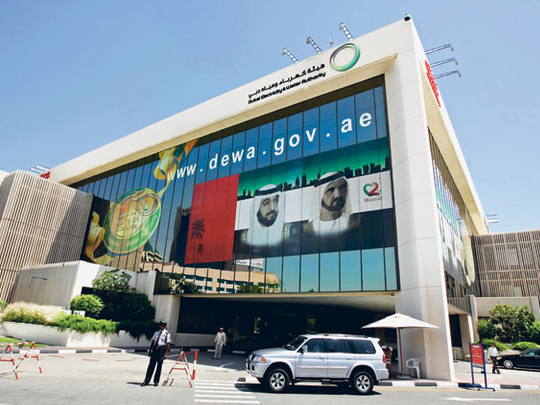
Dubai: The UAE's corporate bond issuance market that went into hibernation after the Dubai Government announced a standstill on Dubai World's debts in November is seen getting a new lease of life following the successful $1 billion (Dh3.67 billion) bond issue by Dubai Water and Electricity Authority (Dewa).
Investment bankers and bond market analysts see signs of a gradual revival in the corporate bond market in the UAE and the Gulf region that had been stalled for over five months.
"Clearly the success of the Dewa bond underlines demand for Dubai bonds, but that does not inherently imply that the market is open for all issuers," Jacco Keijzer, executive director and head of RBS' debt capital markets business in the Middle East, said.
"After the recent events in Dubai, investors are now looking for companies with strong operations in a stable/growing sector combined with a solid strategy and financial profile. Companies that do not meet these criteria will struggle accessing the market," he said
Revival of market
Bankers said that the government's restructuring plan for Dubai World announced last month and the overall revival of demand for emerging market fixed-income issues are giving a boost to the debt issues from the UAE and the region.
"There has been improvement in market conditions ever since the Dubai government announced its proposal to restructure the debts of Dubai World and its related entities. Acceptance of the deal by banks will be critical for market sentiment," said Mohieddine Kronfol, managing director, asset management, at Algebra Capital.
"With respect to capital markets, the global financial crisis and the Dubai World restructuring together resulted in a sharp decline in capital-raising, particularly from Dubai. However, the recent successful return to the capital markets by Dubai Electricity and Water Authority [Dewa] should serve as an important bellwether of the emirate's ability to access the markets," Ann Wyman, managing director and head of emerging market research at Nomura, said in a report.
Some analysts and credit rating agencies attributed Dewa's ability to tap the market to its standalone corporate profile. "With investor focus having now shifted almost exclusively to the stand-alone profiles of Dubai issuers as the prospect of extraordinary government support became more selective, Dewa is seen at this stage to be amongst the strongest," said David G. Staples, managing director of the corporate finance group at Moody's.
Algebra's Kronfol believes that although standalone performance would help companies to access the debt markets, the overall level of transparency and governance standards will play major roles in getting the right pricing for debt issues from the region. "Issuers from the region now face the reality that factors beyond their standalone financial performance will impact the pricing of their issues," he said.
Analysts say Dewa's bond pricing is a clear example how factors other than the standalone performance could affect the credit rating and bond pricing of an issuer. Dewa's bond was issued at 8.5 per cent, at a premium of 595 basis points to US Treasuries, which some bankers said is expensive for a company that is a virtual monopoly in its business and has had a history of strong cash flows.
Optimists say that the very fact Dewa has been able to tap the international debt capital market is a sign of improving market sentiment and future issuers could get better pricing depending their track record.
Bankers expect new issues to pick up from the second half of the year. "Although the Dewa bond issue underlines that there continues to be strong demand for credits with a proven operational and financial track record, this does not automatically translate into an expected flurry of issuance," RBS' Keijzer said.
After a significant number of issues in the bond market in 2009, a large number of corporates are well-funded, and, with the return of liquidity in the loan market, investment banks point to a sustained lull in the second quarter with new issues picking pace most likely only in the second half of 2010.
Increase in demand
Fund managers and private banking executives say that there has been a significant increase in demand for Middle East corporate bonds from institutional and high net-worth investors. "The relatively faster economic recovery in the region combined with improving risk appetite of portfolio investors is driving up the demand for emerging market bonds. Some of the regional corporate bonds such as Commercial Bank of Qatar, Qatar Telecom and National Bank of Abu Dhabi feature among the top 40 bonds we track," said Didier Duret, chief investment officer of ABN Amro Private Banking, Global Strategy and Research.











